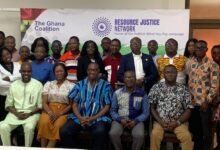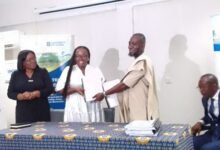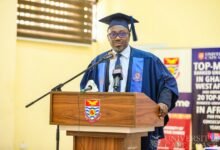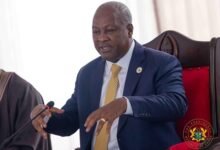Legislation on genetic resource benefits being developed

Legislation is being developed to help Ghana get its fair or equitable share of benefits derived from the use of the country’s genetic resources by foreign institutions and individuals.
Genetic Resources are materials of plants, animals or microorganisms which are of actual or potential value located in a given country within a defined environment.
Although Ghana has ratified the Nagoya Protocol on Access to Genetic Resources and the Fair and Equitable Sharing of Benefits Arising from their Utilisation to the Convention on Biological Diversity, the country is losing out.
On the sidelines of a workshop on the protocol in Accra yesterday, the Ministry of Environment, Science and Technology and Innovation, Dr Kwaku Afriyie, said the legislation was one of the avenues to change the status quo.
Organised by the ministry, the workshop, which brought together researchers and scientists from various institutions under the ministry, was to increase awareness of the protocol.
Also known as the Nagoya Protocol on Access and Benefit Sharing (ABS), the protocol is a supplementary agreement to the 1992 Convention on Biological Diversity, which came into force in October 2014 with the aim of ensuring fair and equitable sharing of benefits from the utilisation of genetic resources.
Earlier in his welcome address, Dr Afriyie said Genetic resources – whether from plants, animals, or micro-organisms – may be used for different purposes such as basic research or commercialisation of products.
He said users of genetic resources included research educational institutions and companies, including the pharmaceutical, biotechnology, seed, crop protection, horticulture, cosmetic and personal care, fragrance and flavour, botanicals, and food and beverage industries.
Providing these users with international access to genetic resources, he said, had the potential to be beneficial for socioeconomic development, but laid-down procedures should be followed for the country to get its due.
Dr Afriyie said the ministry would create awareness about the policy and build the capacity of key stakeholders.
The Chairman of the National Biodiversity Steering Committee, Professor Alfred Oteng–Yeboah, said Ghana needed digital sequence information, like a chemical library, where all the DNA would be assembled for sale.
“If you just have a scan of all the genetic resources that this country has, you can just think about what kind of things actually are making Ghana so that we can take bold decisions; we can take all of these resources and reap the benefits due our country,” he said.
The Director of Environment at the Sector Ministry, Mr Peter Dery, said the ministry and its agencies would catalogue all protocols the country had ratified so it could localise some of them to enable the country to derive benefits from them.
“We are moving towards legislation on the ABS and other related protocols,” he said.
In a presentation, Dr Daniel Kotey, the Director of Plant Genetic Resources Research Institute of the Council for Scientific and Industrial Research, said between 2019 and this year, Ghana had approved four applications for access to genetic research.
He said two applications were pending while about 10 others were yet to complete the process.
BY JONATHAN DONKOR AND MARYAM OMARU






